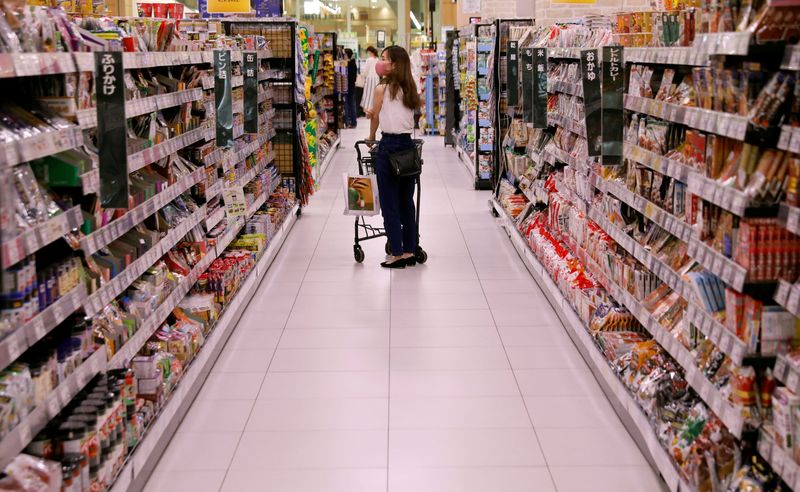By Kantaro Komiya and Yoshifumi Takemoto
TOKYO (Reuters) -Japan's retail sales rose faster than expected in November, thanks to decreasing COVID-19 cases in the month, which have encouraged shoppers to ramp up spending on goods and services.
To support the economy, Japan's parliament last week passed a $317 billion extra budget that includes payouts to families and businesses hit by the pandemic while the government approved a record $940 billion budget for fiscal 2022.
Prospects of a consumption-led recovery, however, are clouded by uncertainties around the new Omicron coronavirus variant, which started to spread in the community last week in Japan's largest cities.
"So far, consumers haven't been too concerned with the Omicron as foot traffic data still shows increase," said Masato Koike, senior economist at Dai-ichi Life Research Institute.
The government said on Thursday it was not considering immediate changes to domestic COVID-19 restrictions due to the Omicron.
"But if new infections jump...there is a risk, or a likelihood at this point, that consumption will be suppressed by the Omicron," Koike said, adding returning travellers during the holiday season could spread infections.
Retail sales gained 1.9% in November from a year earlier, government data showed on Monday, faster than economists' median forecast for a 1.7% gain and the 0.9% advance in October.
Fuel sales rose 29.2% in November from a year earlier, thanks to soaring commodity prices, pushing up the overall retail trend. Car sales fell 14.1% due to supply bottlenecks and electronics sales declined 10.6% with diminishing demand for stay-at-home appliances.
Compared with the previous month, retail sales increased 1.2% in November on a seasonally adjusted basis, after a downwardly revised 1.0% rise in October.
After the government lifted curbs in September, nationwide daily COVID-19 cases in Japan fell to fewer than one per million people earlier this month.

No restrictions have been reinstated, other than strict border controls to stop the spread of the new Omicron variant.
The world's third-largest economy is set to rebound by an annualised 6.1% in the current quarter from a 3.6% slump in July-September, according to the latest Reuters poll of economists.